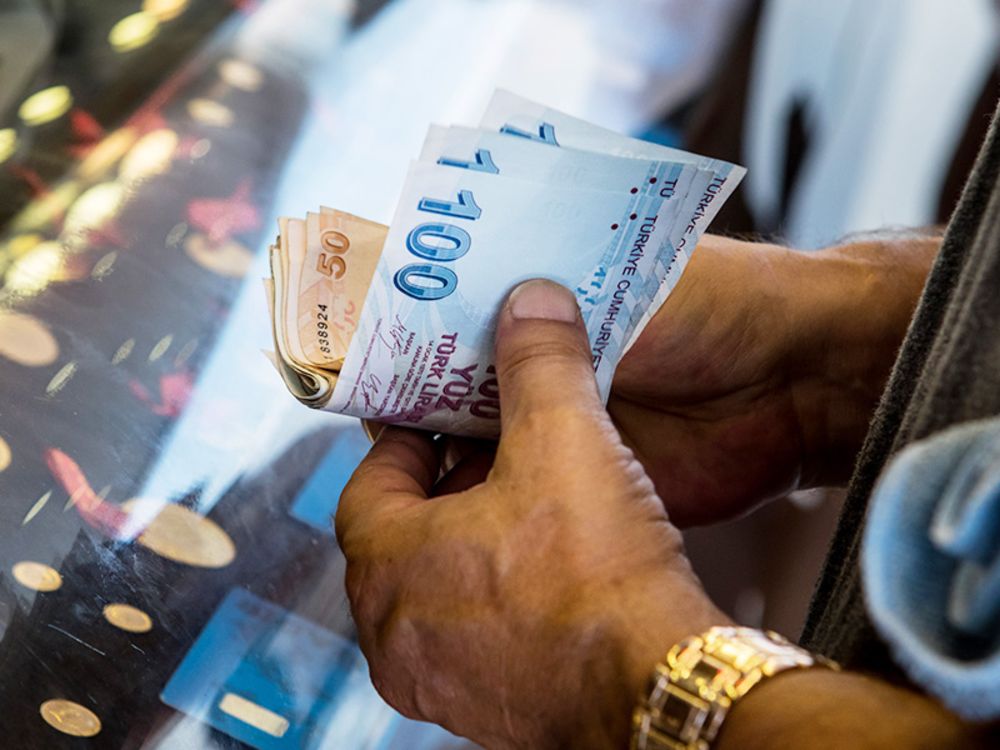The lira’s 2018 plunge triggered a deep recession, and President Recep Tayyip Erdogan’s government may see the attraction of suffocating an offshore market it believes to be a hotbed of destabilising speculation.
Ankara knows that market greases the wheels of the $14 billion a year of foreign direct investment Turkey sucks in on average — nearly 60,000 companies had foreign capital there last year — not to mention helping to cover its $160 billion external funding gap.
Nevertheless, Erdogan frequently blames foreign “speculators” for sending the lira sprawling. That in turn squeezes payments and the refinancing of Turkish companies’ hard currency debts, sends household savings scurrying to dollars, ramps up inflation and interest rates and slams the brakes on the economy.
So pressuring local banks late last month to stop lending lira to overseas counterparts looked like a deliberate ploy and one that had a striking resemblance to a capital control.
The cost of offshore borrowing in the Turkish currency surged by more than 1,000 percent overnight, leading to pain for short sellers but a frozen market.
Some life returned last week, but Societe Generale’s head of emerging market strategy, Jason Daw, thinks the episode shows Ankara would like to nail it shut if only it could without completely choking investment.
“That seems to be the message, considering they squeezed the international positions so much,” he said, adding it was relentless volatility that irked Ankara.
However, the offshore market has existed comfortably for years. Investors like it because it can be easier to get credit lines with a JP Morgan, Barclays or Citi than a smaller Turkish bank in Istanbul or Ankara.
Bank of England analysis shows $35.8 billion worth of daily offshore lira trading was going on late last year. It was even bigger, at $56 billion a day, in April before the lira crashed 40 percent.
Offshore currency and swap markets are typically freer of heavy central bank influence than domestic markets, but they are still vulnerable to the ebb and flow of local currency liquidity. And this — as illustrated last month — is where authorities do retain an element of control.
Simply by shutting off its funding auctions for a while and maybe a bit of behind-the-scenes leaning on the local lenders, the central bank could spike the swap rates and briefly seize the market.
“The lira only stabilised once offshore interest rates rose significantly above onshore rates,” analysts at Goldman Sachs observed a few days afterwards as the recovery began.
SHORT MEMORIES
The squeeze may have relented for now, but many countries, both emerging and developed, have periodically tried switching off speculation in offshore currency markets when battling currency runs in decades past. Thailand, Malaysia Argentina and Iceland are just a few examples.
The all tend to boil down to where households and companies are losing confidence in their country’s currency, but authorities don’t have the foreign-exchange reserves to fight the run.
Not only does Turkey need foreign investors to buy its debt and provide FDI, but FX reserves are looking thin, especially as Turks are now stashing away record amounts of dollars.
Aberdeen Standard Investments’ Kieran Curtis says that this hoarding means Turkey’s banks effectively have a surplus of dollars on their books but a shortage of lira.
He thinks for that reason Ankara won’t want to mess too much with the offshore market — it is crucial for balancing the mismatch. By spooking the market, bank transaction costs could easily rise. “It is not a sustainable business model,” he said.
Having a London lira market was also a symbol of “great importance” for Turkey’s free market credentials, said İbrahim Turhan, a former deputy governor of the Turkish central bank.
“The fight against speculative attacks will be made with rational policies and good governance, not bans,” he said.
Ankara would also need to make major improvements to bring more lira trading onshore. Authorities there have opened a local currency swap market under Borsa Istanbul which Turkish banks have started to use. But without foreign investors, traders say, the volumes won’t achieve the necessary scale.
It has backed away from offering non-deliverable forwards and there is no domestic interest rate swap market as there is not only in major markets but also in other emerging markets, such as Russia, Poland and Hungary.
So for now at least it looks like the international market will continue to recover, albeit with nagging worries about what happens next time the lira really lurches.
“It’s too early to say if people that got burnt will come back,” said one senior FX trader in London. “But people tend to have very short memories. I am always surprised at how quickly people come back into the market.”



